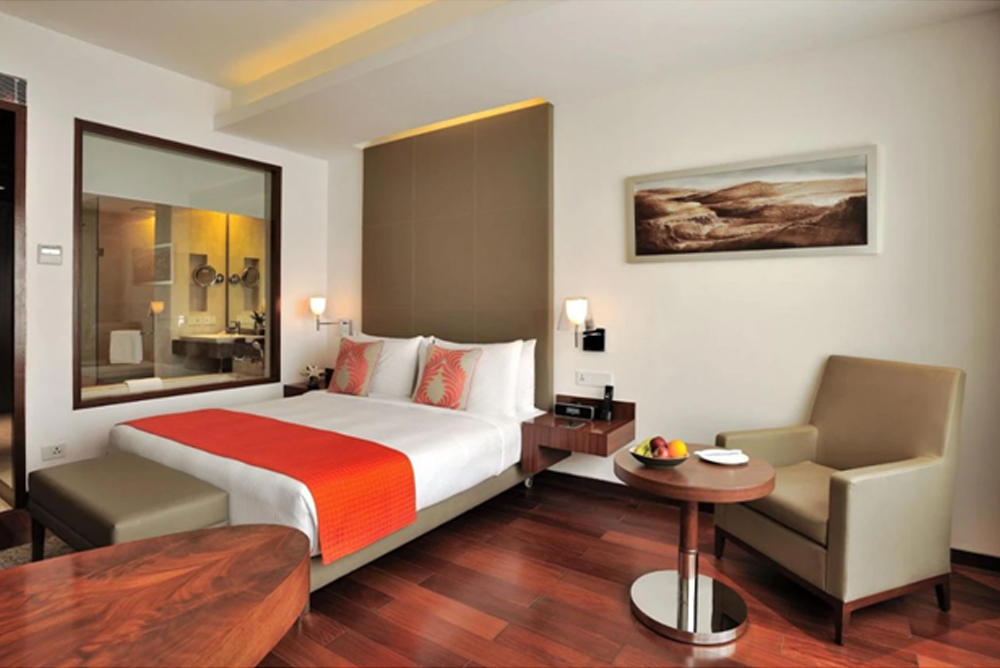In today’s hyper-connected global economy, business travel is more than just a routine necessity—it’s a strategic enabler. Professionals traverse cities and continents to attend meetings, explore emerging markets, and cultivate networks that transcend borders. A business trip to Gurgaon, for instance, may involve attending high-level meetings with stakeholders, exploring upcoming exhibitions in Delhi, or participating in influential conferences in Gurgaon. While the benefits of business travel in terms of corporate growth and global connectivity are clear, what often goes unnoticed is how these frequent journeys shape the travelers themselves. Business travel exerts a profound influence on personality traits and work performance, with both uplifting and detrimental outcomes. Whether you flourish or flounder under the pressures of a jet-set career can depend on various factors including personal disposition, organizational support, and frequency of travel.
Embracing the Positives: Personality Growth Through Travel
1. A Gateway to Cultural Awareness and Openness
One of the most enriching aspects of business travel is exposure to diverse cultures and environments. Whether it’s attending a business lunch in Tokyo, negotiating a deal in Dubai, or brainstorming with a team in Berlin, each experience expands one’s cultural horizons. This regular interaction with global cultures tends to develop the personality trait of openness to experience—a critical component of creativity, empathy, and adaptability. Studies have shown that people who travel frequently for work often score higher in emotional intelligence and cross-cultural competence, which directly translates into improved teamwork and communication skills in multinational work environments.
In India, for instance, professionals attending upcoming exhibitions in Delhi or major conferences in Gurgaon often return with a broadened outlook, better understanding of market trends, and greater cross-cultural appreciation.
2. Development of Soft Skills
Business travel often takes professionals out of their comfort zones. They must navigate unfamiliar cities, communicate with diverse stakeholders, manage last-minute changes, and troubleshoot logistical challenges. These situations inherently demand flexibility, strong communication, problem-solving, and decision-making skills. Over time, these repeated experiences help hone vital soft skills such as leadership, emotional regulation, and adaptability. These are not just personality perks but are key drivers of career success in any field.
3. Boosted Confidence and Independence
There is a unique sense of accomplishment that comes from handling business trips efficiently. From arranging flights and managing schedules to resolving cross-cultural miscommunications and leading presentations abroad, these tasks demand a proactive mindset. Successfully managing them not only builds self-confidence but also nurtures independence. Employees who travel for work, including those on a business trip to Gurgaon, often report feeling more self-assured and capable of handling high-pressure situations when they return to their day-to-day roles.
4. A Spark for Creativity
New environments stimulate the brain. Stepping away from routine settings and experiencing unfamiliar sights, sounds, and interactions encourages creative thinking. Business travelers often find inspiration in foreign markets and cultures, which helps them return with fresh ideas and innovative approaches to existing problems. This increased cognitive flexibility and global perspective can be an asset for organizations striving to remain competitive and innovative.
Your growth journey deserves a great stay. Book your next business trip with Anya Hotel and experience the comfort you deserve. Click here to know more
The Flip Side: The Emotional and Physical Toll of Business Travel
1. Chronic Stress and Burnout
While business travel may look glamorous from the outside, it often entails tight schedules, frequent time zone changes, and disrupted sleep. This physically taxing lifestyle can lead to chronic stress and burnout. Over time, these effects may alter one’s personality—manifesting as irritability, impatience, or a reduced tolerance for ambiguity. For some, the constant pressure and unpredictability of travel can result in anxiety or even depressive symptoms, negatively impacting both personal well-being and professional output.
2. Strain on Personal Relationships
Consistently being on the road can distance professionals from their loved ones, leading to emotional disconnect and guilt. The absence from family events, missed milestones, and reduced quality time with friends can strain relationships. These stressors may also bleed into workplace dynamics, potentially making individuals less empathetic, more withdrawn, or harder to collaborate with.
3. Deterioration of Physical Health
Irregular meals, limited access to nutritious food, lack of physical activity, and inconsistent sleep patterns are common companions of frequent travel. Combined, these factors can lead to fatigue, digestive issues, weakened immunity, and other health problems. Poor health not only impacts personality by affecting mood and motivation but also significantly hampers work performance through reduced concentration, lower productivity, and more sick days.
4. The Risk of Personality Polarization
Perhaps most interestingly, research indicates that frequent business travel can act as a personality amplifier. Some professionals thrive under its dynamic and challenging nature, becoming more adaptable, resourceful, and driven. Others, however, may struggle, becoming disengaged, demotivated, and even resentful. This polarization can sometimes be influenced by organizational culture, individual coping mechanisms, and support systems available to the employee.
Strategies to Optimize the Benefits of Business Travel
Acknowledging the double-edged nature of business travel is essential for maximizing its benefits while minimizing its pitfalls. Here are several strategies that both employers and employees can adopt:
1. Prioritize Employee Well-Being
Organizations can offer wellness programs that include stress management resources, health check-ups, and counseling services. Providing access to rest areas at airports or subscriptions to meditation and fitness apps can help employees maintain a sense of balance even while on the go.
2. Promote Cultural Immersion
Encouraging employees to explore local culture during downtime fosters a sense of engagement and learning. Whether it’s a visit to a local museum, upcoming exhibitions in Delhi, or trying regional cuisine during a business trip to Gurgaon, these small experiences enhance adaptability and open-mindedness, further contributing to personal and professional growth.
3. Monitor Travel Frequency
While some trips are essential for strategic objectives, others may be unnecessary. Organizations should assess whether certain meetings or events can be replaced with virtual alternatives. Limiting unnecessary travel can prevent burnout and preserve employee morale.
4. Establish Support Systems
Support structures such as flexible schedules post-travel, personal days, and the option to include family on longer trips can reduce emotional strain. Mentorship programs and regular mental health check-ins also ensure employees feel supported and valued.
5. Encourage Reflection and Learning
Creating platforms for returning travelers to share their insights and experiences can be valuable for the entire team. It helps the traveler process their learnings and inspires others with fresh perspectives that can drive innovation within the company.
Conclusion: Finding the Balance
Business travel is an undeniable catalyst for personal growth and professional development. It cultivates essential traits like openness, adaptability, resilience, and creativity. At the same time, it poses tangible risks to mental, emotional, and physical health when not managed thoughtfully. Whether business travel becomes a transformative experience or a draining obligation largely depends on how individuals and organizations choose to navigate its demands. With the right support systems and an emphasis on balance, business travel can be a powerful tool for nurturing stronger personalities and more dynamic work performance.
Ultimately, the journey matters as much as the destination. So whether it’s a conference in Gurgaon or exploring upcoming exhibitions in Delhi, when the journey is managed well, both the employee and the organization arrive at a place of mutual growth and success.


